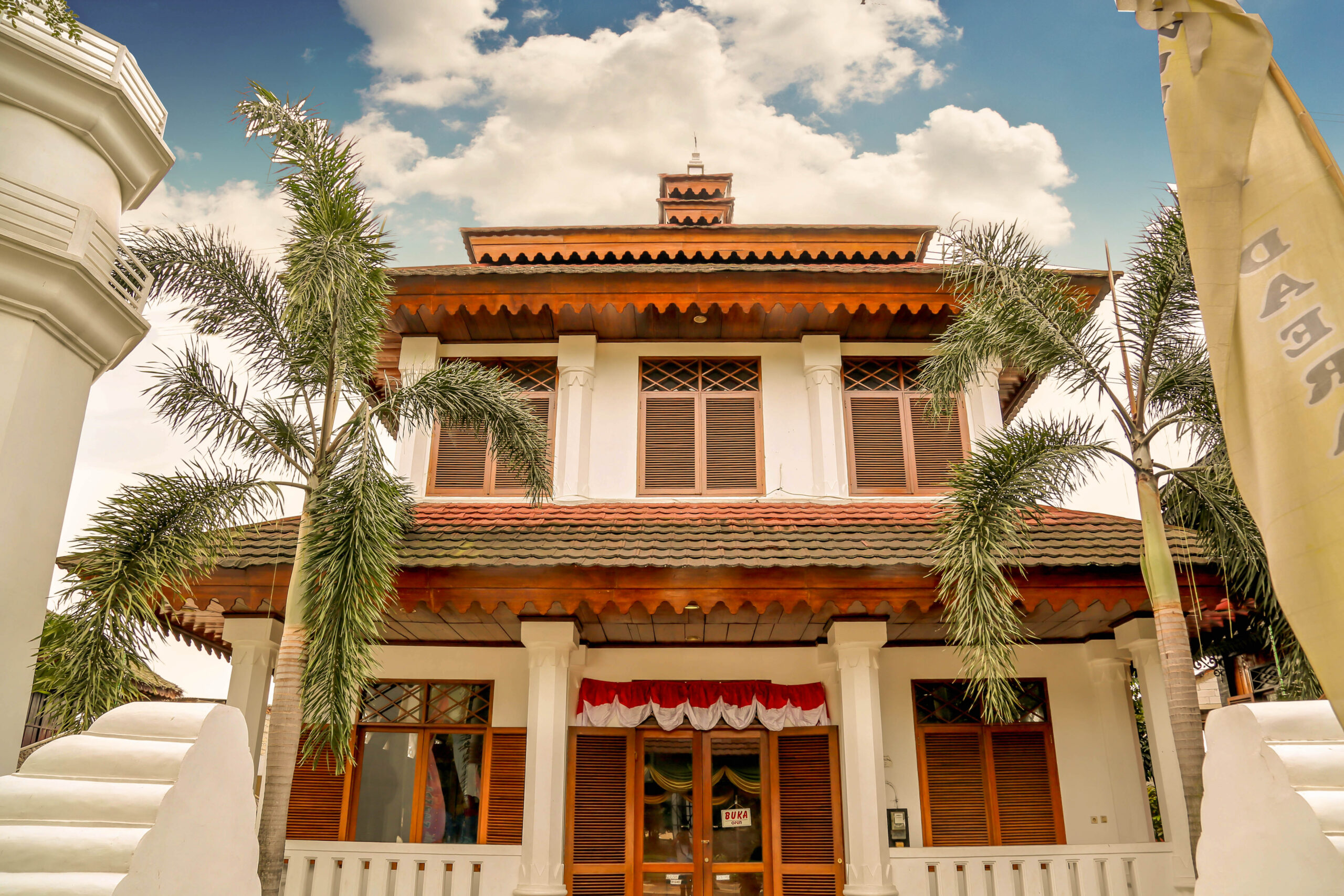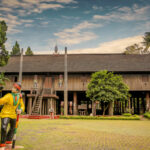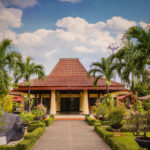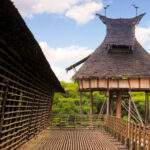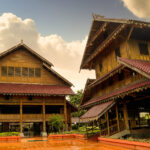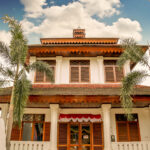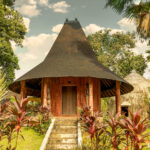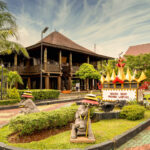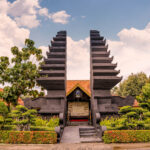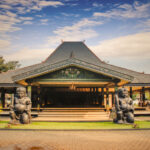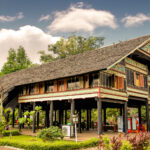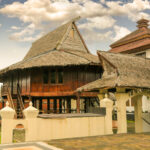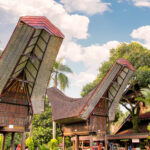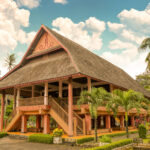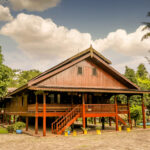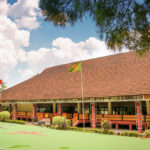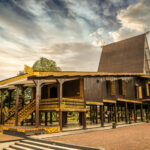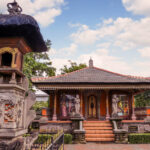Wilujeng sumping!
In ancient times, Banten stood as a powerful Islamic kingdom rooted in the vibrant world of maritime trade. This region was once known as a bustling trading post in Southeast Asia and later flourished as a center for Islamic propagation under the leadership of Sultan Maulana Hasanuddin and Sultan Ageng Tirtayasa.
Banten weaves together a cultural tapestry composed of diverse ethnic groups living in harmony—from the Bantenese, Sundanese, Javanese, and Betawi, to Chinese communities and the remote Baduy tribe. The primary languages spoken are Sundanese-Banten and Javanese-Banten.
One of Banten’s most celebrated traditional performances is Rampak Bedug, a dynamic display of rhythmic drumming that blends percussion with dance. Another is the mystical traditional martial art Debus, renowned for its elements of supernatural strength, fusing music and movement. In this dramatic performance, practitioners showcase their immunity to sharp and hot objects in a gripping test of endurance.
The Banten Pavilion at TMII features a main building inspired by the classic architecture of the Great Mosque of Banten, originally built by Sultan Maulana Hasanuddin in 1566. The ground floor serves as an exhibition and performance space, while the upper floor functions as an office. This square-shaped structure features a five-tiered tumpang (multi-layered) roof. To the front right stands a replica of a tower about 10 meters high, designed as a lighthouse-like structure.
Inside the pavilion, visitors can explore displays of traditional attire, musical instruments, household items, traditional weapons, and captivating local crafts. Highlights include Banten’s distinct Batik patterns, the Debus musical instrument, Rudat dance, the dramatic Terbang Gede performance, and traditional costumes worn by Akang and Eteh (young men and women), including daily wear of the Baduy people.
Craftworks featured in the pavilion include exquisite agate jewelry, intricately woven bark crafts, handwoven traditional fabrics, and charming bamboo weavings. Clay-based creations such as pottery and ceramics also add color to the cultural space.
DID YOU KNOW?
The origins of the Debus tradition remain shrouded in mystery. The word “Debus” is believed to come from “tembus” (to penetrate), referencing the signature act in which performers pierce their bodies with sharp metal objects or endure blows from hammers. This unique art has been passed down through generations and continues to thrive in Banten’s remote rural villages.

